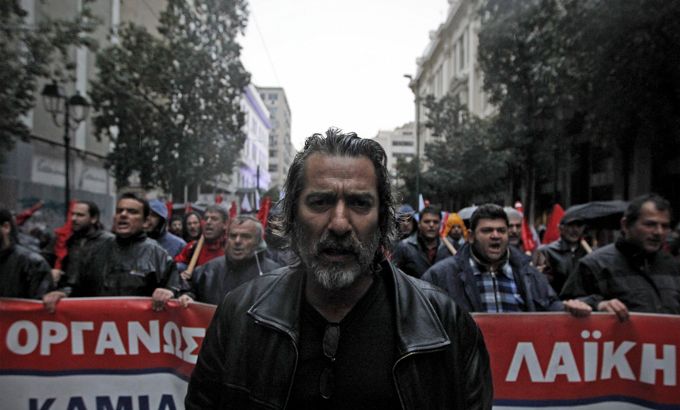
Despondency and disempowerment in Greece
The former Greek prime minister explains why the Greek people should be given a chance to have their say on austerity.
This week, the European Central Bank agreed to lend European banks 529bn euros. However, it said it would no longer accept Greece’s bonds as collateral for loans after the country was downgraded to a default rating. So, have political leaders been too tough on Greece and should the Greeks have their right to have their say in a referendum?
One man who is perfectly placed to answer that question is the man who lost his job after he floated the idea of a referendum last year – George Papandreou, the former Greek prime minister. He tells Sir David Frost why he believes a referendum should have been held:
“The referendum basically was saying we give the chance to the Greek people to own this process, the process of change, [to] take on the responsibility – the responsibility that many of the people in the elite in Greece … did not want to take on …. And I believe we had to put the dilemma directly to the Greek people. And I was of the opinion that this would have been a positive vote for Greece remaining in the euro but also for the Greeks to say that ‘yes, we will sustain the pain as long as we can make the changes we want to make Greece a viable economy’.
“People feel disempowered. Citizens feel they don’t have a say. People are turning their backs towards our political system and one of the reasons is that they feel that even governments are powerless in this globalised financial system which has much more money, much more power … than even elected governments have.”
The president of Ireland as head of state has an important ceremonial and constitutional role. But perhaps most importantly the president plays a critical part in the moral life of the nation. Given that Ireland is facing an economic and national crisis Michael D Higgins, the Irish president, has his work cut out over the next seven years.
He has promised that his presidency will be one of transformation as he hopes to repair what he believes is a wounded society. But how will he do this and can Ireland really recover?
He tells Sir David: “I think the type of Irishness that had community at its centre, that spoke about solidarity, independence not in an individual, consuming sense had been lost. Matters became acute, I think, in the last 15 years, where individual acquisition of wealth became the measure of the person who was successful. And this led to a certain distancing then from what I would call the real economy into a speculative economy.”
| Shakespeare’s troubled years |
Sir Patrick Stewart is part of Britain’s theatrical royalty, but he is equally admired all over the world for his science fiction characters.
He is now playing a character he knows so well that he refers to him as a friend. That friend is William Shakespeare and the play is Bingo which portrays the troubled years of Shakespeare’s life. He talks to Sir David about the play, his family and his acting career.
Sir David then turns to the topic of the US’ changing role in the Middle East with former US Ambassador Daniel Kurtzer, who explains how Barack Obama’s commitments to the region addressed in the Cairo speech remain unfulfilled.